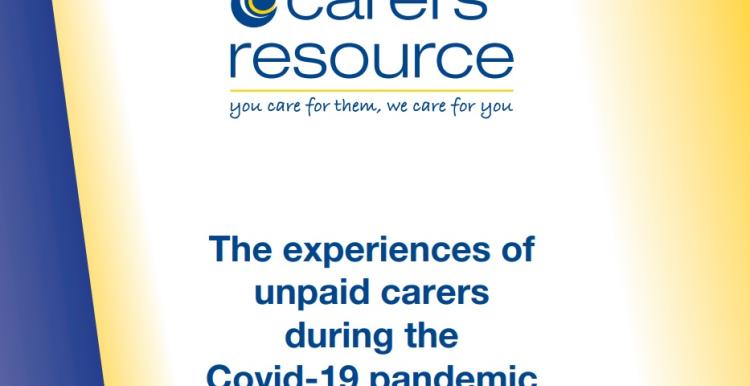Carers’ Resource launches research which shows the true impact of the pandemic on unpaid carers

During the pandemic and its continuing effects, Carers’ Resource staff witnessed powerful evidence of the struggle and suffering of carers across Bradford, Harrogate and Craven.
This new study draws together the experiences of hundreds of unpaid carers from these areas - and dozens of staff and volunteers who support carers - to reveal how the closing of services, limiting of primary and secondary care and restrictions on everyday routines really affected carers during these unprecedented times.
The research was commissioned by NHS England & NHS Improvement’s Commitment to Carers Programme as one of 30 rapid-learning projects across the country.
- The pandemic intensified and compounded many of the issues already faced by carers.
- Those who were new to caring during the pandemic found it even more difficult to access services than those who were already on a care pathway.
- The pandemic had an effect on the physical and mental health of many carers.
- The specific needs of unpaid carers were not considered in the development of lockdown restrictions.
- The effects of the pandemic are still being felt by carers.
'Powerful messages'
Chris Whiley, CEO of Carers’ Resource, said: “We knew there had been huge challenges for unpaid carers throughout the pandemic. This report really highlights the extent of the crisis they faced.
“Carers’ Resource staff and volunteers continued to deliver our services throughout the pandemic. Often our staff were being told by carers that no other services had been in touch with them. Many organisations disappeared from view and carers found it difficult to get the support they needed.
“We have learned a great deal from this study and we hope that other organisations who work with carers will take note of the findings.
“It’s crucial that carers’ voices are heard and there are some incredibly powerful messages here. We’re very grateful to the hundreds of carers from Bradford, Craven and Harrogate who helped us compile this research by taking part in one-to-one interviews and online questionnaires.”
Recommendations
The study makes a number of recommendations, which can be summarised as follows:
- Recognition that there needs to be a sustained campaign to encourage unpaid carers to recognise their role, and that asking for support as a carer is an acceptable thing to do.
- An increased focus on the need for a break from caring, and funding to support it.
- Greater recognition of the role and needs of, unpaid carers in any future public health campaigns.
- At a local level there needs to be a greater recognition of the carer’s role in health and care settings.
- Work needs to be undertaken in primary care settings to embed the Quality Markers for carers to ensure that all carers are registered as such with their GP.
- Agencies and organisations need to be creative in enabling carers to be consulted, and to engage in the co-design of services.
Comments from carers in the study included:
- “My work load has increased since the pandemic started, because my husband has lost a lot of strength and stamina, and my parents have both become more frail, because they only sat at home for two years.”
- “My Dad is still living by himself, but his needs have increased and he was needing more help from me. I am exhausted now, after these two long years.”
- “My physical health has been greatly affected, to the point that I am no longer able to drive or be an escort, and so my daughter is not currently attending college. This is causing a great deal of stress, as my daughter has complex needs.”
- “Both of our lives shrank so much. We both got depressed, and both of us are less fi t and less healthy than we were two years ago. Much, much less fit.”
- “My Mum couldn’t quite understand why she wasn’t going to her group, why she couldn’t go to see her friends, why her routine changed. It made her even more anxious, and quite bad tempered. My Mum was demanding more of my time, she didn’t understand that I had to work at home. Working at home, dealing with my
- "Mum’s bad temper, it has left me depressed and having to take time off work.”


